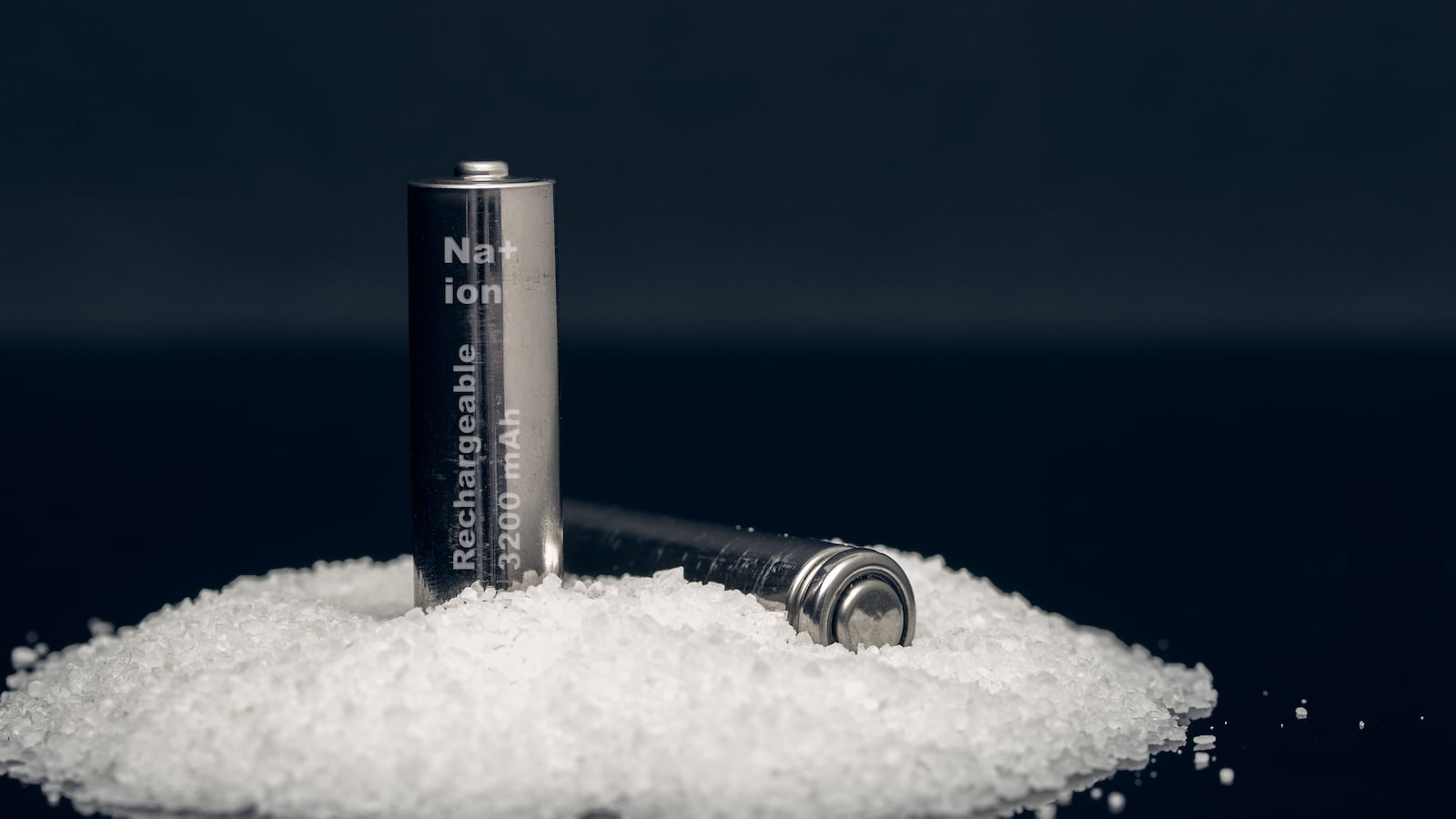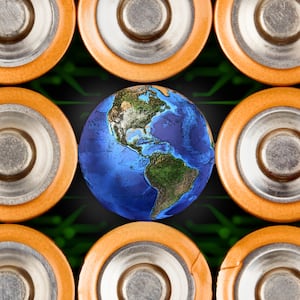You’re likely reading this story on a device that uses a lithium-ion battery—which kind of sucks.
For one, batteries like the one powering your phone or laptop are expensive to make. This is mostly because the rare minerals used in them are costly and resource-intensive to mine. There’s also the fact that the batteries are prone to exploding—resulting in injuries, property loss, and even death in some cases.
That’s why engineers at MIT have developed a new type of energy storage that uses inexpensive, readily-available materials—and it’s potentially safer than lithium ones.
The battery—which is described in a paper published on Wednesday in the journal Nature—uses aluminum, sulfur, and salt in order to store and provide power. The ingredients are cheap and plentiful. After all, aluminum is the second most abundant element on Earth (just check the tin foil aisle of your local grocery store). Sulfur is a common waste product for industries like oil refining. And salt is… well, salt. Our rocks and oceans are filled with it.
When combined, though, these elements can create a battery that charges quickly and costs a fraction of what lithium-ion cells cost.
“I wanted to invent something that was better, much better, than lithium-ion batteries for small-scale stationary storage, and ultimately for automotive [uses],” Donald Sadoway, a materials chemistry researcher at MIT and co-author of the paper, said in a press release.
Aluminum and sulfur act as electrodes for the battery, while a type of molten salt acts as the electrolyte. The salt is much safer than the electrolytes used in lithium-ion batteries, which are “volatile, flammable organic liquids,” Sadoway explained. It’s also great at preventing the build up of metal that frequently causes typical batteries to malfunction. However, it still allows for rapid charging.
The study’s authors believe that the battery can be used to support existing green energy systems such as solar or wind power for times when the sun isn’t shining or the air is still. This would be a vital backup system that people can rely on in a pinch. The researchers also believe that the aluminum-sulfur battery could also be used to charge electric cars quickly as well.
The quest to build a better battery is a tricky one—but an aluminum-sulfur battery could go a very long way in ending our dependence on lithium-ion, which are dangerous, expensive, and not all too friendly to the Earth.







